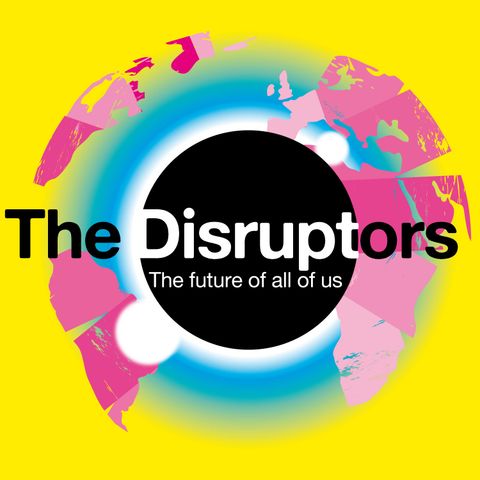56. What Science Fiction Teaches Us About Morality and Existential Risk | Andrew Maynard

Download and listen anywhere
Download your favorite episodes and enjoy them, wherever you are! Sign up or log in now to access offline listening.
Description
Andrew Maynard (@2020science) is the Director of the Risk Innovation Lab at Arizona State University, a Professor in the School for the Future of Innovation in Society and the author...
show moreAndrew is widely published in the academic press and in public media and stretch from physics and nanotechnology, to toxicology, risk perception, governance, and policy. He writes regularly for the journal Nature Nanotechnology, and is a frequent contributor of The Conversation. He also directs and produces the YouTube science education channel “Risk Bites” and blogs at 2020science.org.
Andrew’s science training is in nanoparticle analysis – and for many years he conducted and led research on aerosol exposure in occupational settings. In the early 2000’s he became increasingly involved in guiding US federal initiatives supporting nanotechnology research and development, and in addressing potential risks. In 2005 he became Chief Science Advisor for the Project on Emerging Nanotechnologies (and later the Synthetic Biology Project) at the Woodrow Wilson International Center for Scholars, and for five years helped inform national and global initiatives addressing the responsible development of nanotechnology. Over this period, he became increasingly interested in science communication and science policy, and began working closely with academics, policy makers, industry, non-government organizations, and journalists, on science-informed decision making. This interest continued between 2010 - 2015 as Director of the University of Michigan Risk Science Center, and Chair of the Environmental Health Sciences Department. In 2015 he joined the faculty of the School for the Future of Innovation in Society at Arizona State University to continue his work and collaborations on socially responsible, responsible and beneficial research and development.
In the course of his work, Andrew has testified before congressional committees, has served on National Academy panels, and has worked closely with organizations such as the World Economic Forum and the International Life Sciences Institute (ILSI) that promote public-private partnerships.
You can listen right here on iTunes
In our wide-ranging conversation, we cover many things, including:
* The biggest risks to humanity's future
* Why Andrew is excited and terrified about AI and synthetic biology
* Which areas of technology are most susceptible to negative consequences
* The reason Ex Machina is such a terrifying example of artificial intelligence
* How we can use science fiction to ask deep philosophical questions about society
* Why Andrew is that worried about the killer AI scenario
* The big difference between corporations and universities when it comes to technological innovation
* How Andrew thinks about risk and why it is different than most
* Why man's reach exceeds his grasp and what to do about it
* The reason Andrew is optimistic and pessimistic about the future
* Why nanotechnology has disappointed to date and where we go from here
* Is China or the US a more surveillance driven country?
Information
| Author | The Disruptors |
| Organization | The Disruptors |
| Website | - |
| Tags |
Copyright 2024 - Spreaker Inc. an iHeartMedia Company

Comments